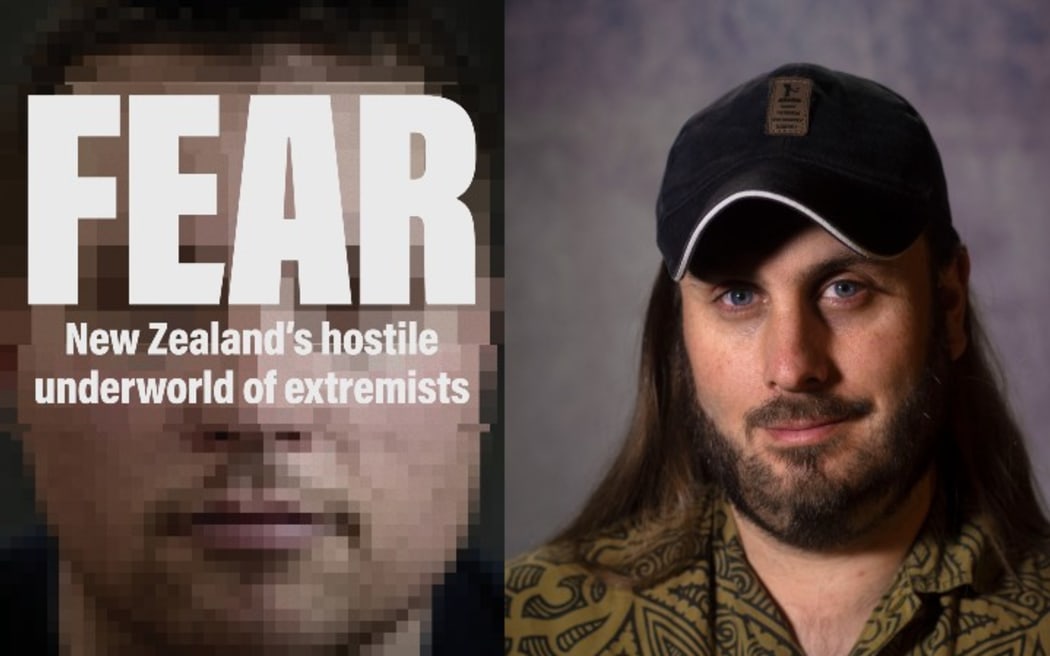
Photo: supplied
Over Waitangi weekend 2022 a convoy travelling both islands made its way to Parliament in Wellington. It transformed into an occupation of Parliament grounds that was to last for over three weeks.
While the anti-Covid vaccine mandate message was clear, a wild range of conspiracy theories circulated. Most disturbingly, amongst the diversity of those gathered were far-right extremists.
In Fear: New Zealand's Hostile Underworld of Extremists, Christchurch activist Byron C Clark traces the roots of the occupation to the re-emergence of the alt-right.
A video essayist on YouTube, Clark began his "deep-web" research into extremist groups and the spread of misinformation after the mosque terrorist attacks in 2019.
Receiving death threats is "pretty regular", Clark says.
Clark told Saturday Morning he had to be careful to not go down the "rabbit hole" while researching and not see these groups and people within them as bigger or more threatening than they really were.
"They certainly try and portray themselves as if they represent the people, that they are the true voice of the people."
While only a small fringe of people in society, Clark said it was important not to ignore them as they could still have a big influence of politics and be disruptive - as the country saw during the Parliament occupation early last year.
He began paying attention to alt-right groups around 2016, but after the 2019 terrorist attack in Christchurch, he began researching more seriously.
While there were women in these movements, it was predominantly men, he said.
"Why they've become such a big part of this movement is a resentment of women, of the LGBT community, of immigrants, of indigenous people, they believe that these groups are now the ones who are privileged."
Clark said it was a combination of economic marginalisation and resentment of people they saw as moving ahead of them that encouraged "a lot of young men to get involved in reactionary political movements".
Clark had received criticism that he was far-left, a label he did not reject.
"I think my politics has changed and evolved over time, but I think the fundamental difference really is that the far-left is wanting a better world, they're wanting social and economical equality whereas the far-right is about white supremacy and so forth.
"Just because they are at different ends of the political spectrum doesn't mean they are both equally bad. I think they are very different movements with very different impacts on society."
Clark said people he had written about in the book had threatened him in the past, and he has had to get restraining orders.
"Doing this work, death threats are pretty regular. Many of them are probably not serious and more about intimidating me but I have been followed home on one occasion.
"I've had things left in the mailbox, I've had, of course, somebody turn up at my workplace, so I don't think you can really be too careful because some of these people are potentially violent."
He said he would not be staying at his usual home for some time - and was preparing to fill out more legal paperwork in the coming months.
Clark said he did not believe there was one single solution to the disinformation far-right extremists believed.
Education was needed - and dealing with economic issues may help have an effect on how such movements grow.

